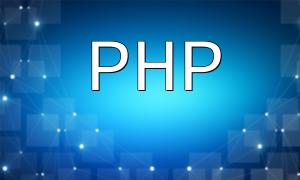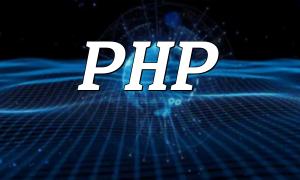1. Common Issues
- Difference Between PHP and HTML: PHP is a server-side scripting language that can be embedded within HTML. Compared to HTML, PHP offers better interaction with databases, dynamic content generation, and more complex logic implementation.
- PHP Installation and Environment Configuration: Before using PHP, the PHP interpreter needs to be installed and configured. This includes selecting the right PHP version, installing necessary extensions, and configuring the runtime environment.
- Error Handling and Debugging: Error handling and debugging are essential in PHP development. Developers should be familiar with PHP's error reporting mechanism and how to use debugging tools effectively.
- Database Connections and Operations: Interacting with databases is a crucial application of PHP. Knowing how to connect to and perform operations (CRUD) with databases such as MySQL and SQLite is key to backend development.
- Security and Vulnerability Prevention: Security is a top concern in PHP development. Developers should follow secure coding practices, validate user input, and protect against common vulnerabilities like SQL injection and cross-site scripting (XSS).
2. Key Points
- Code Organization and Architecture: Well-organized code and architecture are critical for maintaining and scaling PHP projects. Using appropriate design patterns and modular structures improves code readability and reusability.
- Efficient Database Queries: Efficient database queries are essential in PHP development, especially for large datasets. Techniques like indexing, caching, and pagination help improve query performance and reduce resource consumption.
- Caching and Performance Optimization: As an interpreted language, PHP's performance needs attention. Using caching techniques like Memcached or Redis for frequently accessed data can improve site speed and overall performance.
- Secure User Authentication and Authorization: User authentication and authorization are fundamental for most websites. Using secure hash algorithms and password encryption ensures user data security, while proper access controls prevent unauthorized access.
- Exception Handling and Logging: Exception handling and logging are vital for troubleshooting during development. A good exception handling mechanism helps developers quickly identify issues, improving development efficiency and user experience.
3. Tips and Tricks
- Using IDEs and Debugging Tools: Integrated development environments (IDEs) like PHPStorm or Eclipse provide features like code autocompletion, debugging, and refactoring, which can significantly boost productivity.
- Learning and Using Popular PHP Extensions and Libraries: The PHP ecosystem has numerous excellent third-party extensions and libraries, such as Composer and PDO. Mastering these tools helps developers achieve functionality faster and maintain higher code quality.
- Password Security and Encryption: Securing user passwords is crucial. By using proper hashing algorithms and encryption methods, developers can prevent password leaks and hacking attempts.
- Using PHP Frameworks: PHP frameworks (such as Laravel, Yii, etc.) provide comprehensive tools and conventions for faster website and web app development. They help reduce repetitive tasks and ensure best practices.
- Continuous Learning and Growth: PHP is constantly evolving, so continuous learning is essential. Engage in the PHP community, participate in discussions, and share experiences to grow as a developer.
Conclusion
This article has explored common PHP development issues and key solutions. Each problem is accompanied by practical solutions, and relevant optimization tips have been provided. Good programming practices and a flexible mindset are crucial for PHP developers. We hope this article helps PHP developers work more efficiently and securely.









